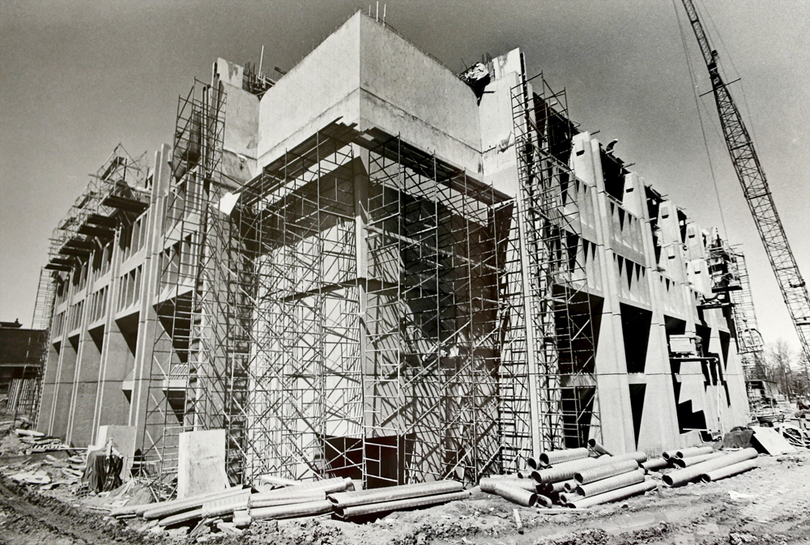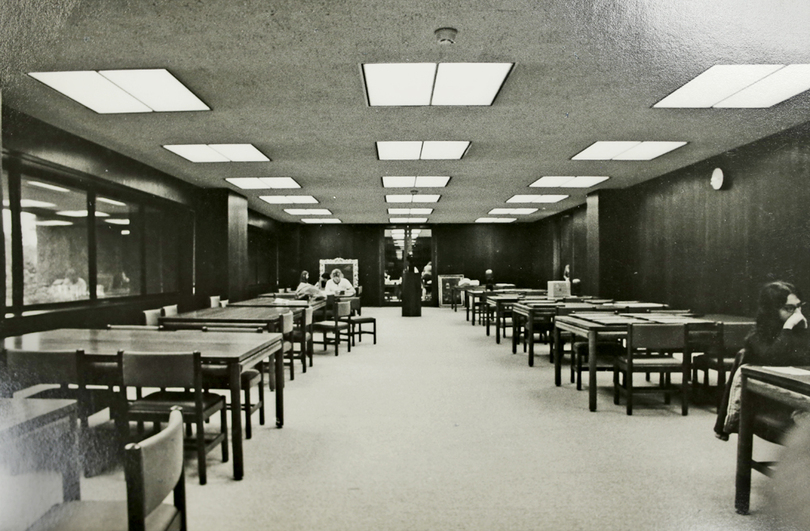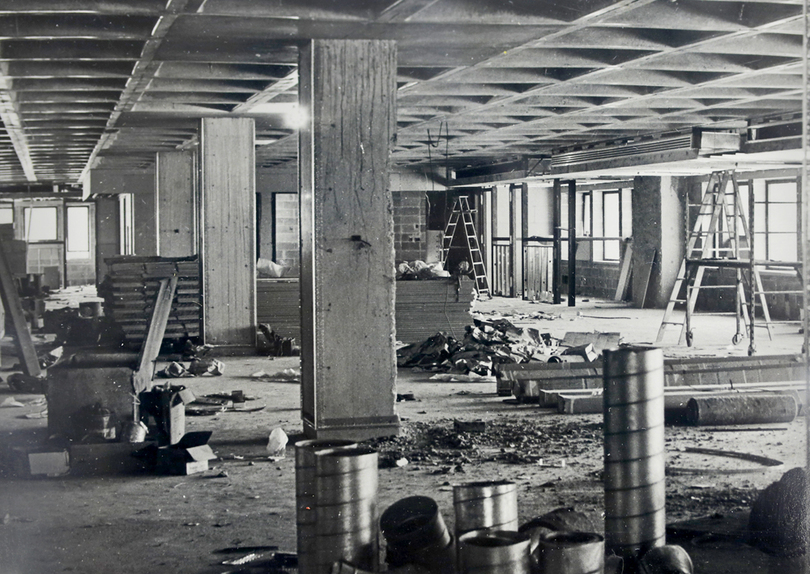As Bird Library begins renovations, some say more funding is needed
Change is happening in E.S. Bird Library for the first time in 30 years as new ideas and renovations come to fruition – but not without financial struggle and political setbacks.
It wasn’t until Chancellor Kent Syverud said in his inauguration speech that he hoped to “empower research excellence at SU” and later visited Bird Library and noted its outdated, out of touch appearance that the ball really started rolling, said Ronald Thiele, SU Libraries’ assistant dean for advancement.
While Syverud has expressed a desire to strengthen SU’s reputation as a research university, Thiele said his visit to Bird yielded fairly simple concerns: improving the quality of the space.
The building’s first floor renovations were revealed in August and by next January the lower level will be completely redesigned. The renovations took place thanks to a generous $150,000 donation by the family of two Syracuse University students in 2012, Thiele said.
“I think the chancellor sees that the library is important to the academic rigor and student experience on campus,” Thiele said. “Bird was built prior to the student center, so because this was the center of information, where do kids go when they get out of class? They come to the library.”
The current renovations are the first Bird Library has seen since 1972 but administrators say more funding is needed for the library to compete with the top college libraries in the country. As the library enters its next chapter, there are also questions about whether Bird should continue to act as a social space on campus or whether it should become a place for more serious study.
Syverud was not the first person to notice the libraries out of date facilities though. In 2012, SU established a review committee to evaluate the collections, services and operations in the university’s libraries, according to the committee’s report. In its recommendations, the committee said SU Libraries must redefine its “strategic direction” on campus and establish priorities for library investment and development.
This same sentiment was noted in the 2003 Campus Master Plan, which details a need to expand Bird Library. The plan is written every 10 years and states architectural and campus planning improvements as recommended by an architectural firm.
It has been 10 years since the last Campus Master Plan was issued and a committee is now being formed to create a new one, said Student Association President Boris Gresely. Gresely said he hopes the committee will use the opportunity to renew infrastructure that’s out of date, such as the library.
“The library should be state of the art, it should be a place where you’re like ‘wow,’ and it’s unfortunate that it has been pushed aside (by the administration) to a certain extent in the past,” Gresely said.
A social sphere
While students have traditionally used Bird as a place of social gathering, Graduate Student Organization President Patrick Neary said he believes students have lost sight of what the library is truly intended to be — a place for research and learning.
The new renovations only further that misconception as they involve an open floor plan that encourages collaborative workspaces, Neary said. Collaborative workspaces can be places where students earnestly work, but they don’t always mesh with individual study spaces when placed side by side, he said.
“There are a lot of floors that are terrible places to study,” Neary said. “If I’m going to sit here and do five hours of math research, and there are people talking all around me, how am I going to study?”
This means that the current state of Bird Library, and some undergraduates’ desire to keep it a social sphere, do not align with the chancellor’s vision. But students also have an important stake in the quality and future of Bird, said Gresely.
Students “pay into the big pocket” because SU is tuition driven, Gresely said. It then becomes the university’s responsibility to decide how the money is budgeted. But if students voice where they think the money should go, they could see real change, he said.
The need for donations
Deborah Pellow, head of the University Senate Library Committee, said that while physical changes are the easiest modifications to make, they usually yield little effect on the internal quality of the library. The most recent renovations have made Bird appear more like a “21st century library,” but Bird and SU Libraries’ collections need both renovations and funding. Once the collections are able to be improved, she said Bird Library may be more in line with the national standard for research libraries.
“Slowly, slowly donations have to happen,” Pellow said. “And there is money being pinpointed, but for something like collections you need regular funding.”
For facilities like Bird, alumni donations really drive its ability to afford the renovations it needs, said Thiele, the assistant dean for advancement. And data backs up this assertion: according to a report issued by the University Senate Budget Committee, SU Libraries currently spend $18,372,392 in order to operate — this placed SU at No. 84 in the Association of Research Libraries’ ranking of peer institutions.
The Budget Committee report also states that in order for SU to be among the Top 50 Association of Research Libraries, it would need “an infusion of $7,000,000 plus regular increases” to bring SU equal to No. 50, which is currently held by the University of Notre Dame.
But it’s not as easy as just “asking someone for a million dollars,” said Thiele. Most alumni choose to donate to their home college, and securing donations for the library can be challenging because some believe that it is part of the operating budget of the university, he said.
Now that the chancellor has set out goals to improve the university’s research capacity, he said he believes that Bird has a real chance to improve not only aesthetically, but in how it serves the students.
“So one way that donors can facilitate this is to fund the library,” Thiele said. “Then we can make those things happen, just as we have with the furniture — we don’t see that as the end. It’s one of those things that can pay it forward for the entire university.”
Published on September 16, 2014 at 12:01 am
Contact Annie: apalme05@syr.edu








